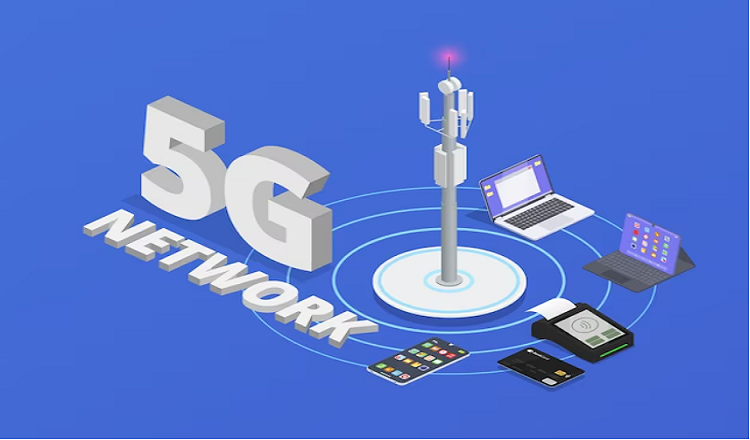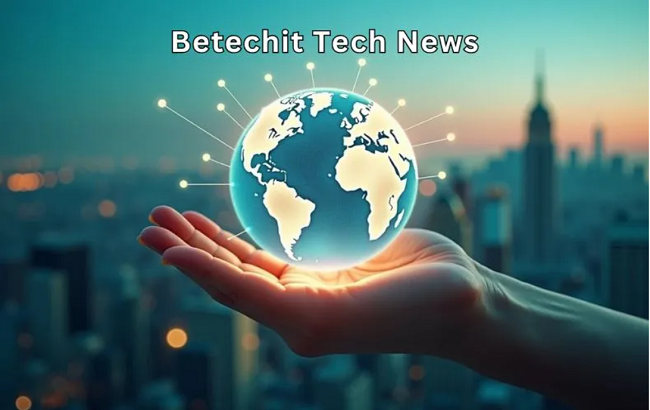Are you tired of slow internet speeds and unreliable connectivity? Do you find yourself constantly frustrated with your devices’ limited capabilities? Well, fear not, because 5G technology is here to revolutionize the way we use and interact with our devices.
So what exactly is 5G technology? In simple terms, it’s the fifth generation of wireless technology, promising faster internet speeds, more reliable connectivity, and enhanced device capabilities. 5G technology builds upon its predecessors, 4G and 3G, and utilizes advanced network infrastructure to deliver a seamless and immersive user experience.
The evolution of wireless technology has had a significant impact on the capabilities of our devices. From the early days of dial-up internet to the wireless revolution of 4G technology, we’ve come a long way in terms of our devices’ abilities. And with the advent of 5G technology, we’re set to see even more impressive advancements. Not only will we experience lightning-fast internet speeds and unparalleled connectivity, but our devices will also have the potential to unlock new capabilities, transforming the way we work, play, and communicate.
So what are the advantages of 5G technology over previous generations? For starters, 5G promises faster speeds than any previous generation, allowing for quicker downloads, smoother streaming, and improved video quality. Additionally, 5G technology boasts lower latency, meaning there will be virtually no delay between devices, making it ideal for real-time applications suc
What is 5G Technology?
5G technology is the latest innovation in the world of mobile networks, offering high-speed data connectivity to users. It is a next-generation technology that is designed to provide faster internet speeds and lower latency compared to its predecessors. The technology utilizes new radio frequencies and advanced network architecture to provide speeds of up to 10 gigabits per second, which is much faster than what was available on 4G networks. This means that users can now download large files, stream high-definition videos, and enjoy other bandwidth-intensive activities with ease. The benefits of 5G technology go beyond faster speeds and include improved connectivity, lower latency,increased capacity, and better energy efficiency. 5G is a significant leap forward from previous technologies and is set to revolutionize the way we interact with mobile devices and the world around us.
Improved internet speed and connectivity
The impact of 5G technology on internet speed is perhaps one of the most significant advantages of this new wireless technology. With 5G, users can expect to experience lightning-fast download and upload speeds, making activities such as streaming and downloading large files seamless and hassle-free. This means that 5G technology is perfect for data-intensive applications that require high-speed internet, such as online gaming and video conferencing.
But it’s not just about speed – 5G technology also promises improved connectivity. Thanks to its advanced network infrastructure, 5G technology can handle more devices connected to the network, making it easier for users to stay connected wherever they are. This enhanced connectivity means that users can expect more reliable connections, with fewer interruptions or dropouts.
And the good news is that 5G technology is already being used to improve internet speed and connectivity in a variety of applications. From smart homes to smart cities, 5G technology is powering the future of connected devices, making it easier for us to access the internet and stay connected no matter where we are. With 5G, the possibilities are endless.
Enhanced device capabilities
The impact of 5G technology on device capabilities is perhaps one of the most exciting aspects of this new wireless technology. With 5G, devices have the potential to unlock new capabilities, transforming the way we work, play, and communicate. For example, 5G technology can power more advanced and immersive gaming experiences, virtual and augmented reality applications, and smart home devices.
Already, we’re seeing how 5G technology is being used to enhance device capabilities. For example, 5G-enabled smartphones can support higher quality video streaming and faster downloads, while 5G-connected drones can be used for more precise and efficient delivery services.
The potential for future device capabilities with 5G technology is enormous. From autonomous vehicles to advanced medical devices, 5G technology has the potential to power a new era of connected devices that are smarter, faster, and more capable than ever before. With 5G, the possibilities are endless, and we’re only just beginning to scratch the surface of what’s possible.
Increased network capacity and reliability
The impact of 5G technology on network capacity and reliability is another key advantage of this new wireless technology. With 5G, networks can support a greater number of connected devices, which is particularly important as the number of connected devices continues to grow. Additionally, 5G networks are designed to be more reliable, with lower latency and higher bandwidth, which means fewer interruptions and more seamless connections.
We’re already seeing how 5G technology is being used to increase network capacity and reliability in a variety of applications. For example, 5G networks can power more efficient traffic management systems, enabling more reliable and faster transportation. In addition, 5G technology is being used to improve emergency response times, with faster and more reliable connections enabling quicker and more efficient responses to emergencies.
Overall, the impact of 5G technology on network capacity and reliability has the potential to transform the way we interact with the world around us. With 5G, we can expect more seamless and reliable connections, even in areas with high network traffic or low connectivity.
Challenges and concerns
While the potential benefits of 5G technology are enormous, there are also several challenges associated with implementing this new wireless technology. One of the biggest challenges is the need for significant infrastructure upgrades, as 5G networks require more base stations and more fiber optic cables than previous wireless technologies. There are also concerns about the potential impact of 5G technology on the environment, as increased energy usage and e-waste could have negative effects.
Another major concern is the potential impact of 5G technology on human health, as some studies have suggested that exposure to high-frequency radiation could have negative effects on human health. However, many experts believe that the risks are minimal and that the benefits of 5G technology far outweigh the potential risks.
To address these challenges and concerns, there are several potential solutions, including increased investment in renewable energy and e-waste management, as well as ongoing research into the potential health effects of high-frequency radiation. By working together, businesses, governments, and individuals can help ensure that the benefits of 5G technology are realized while minimizing the potential risks.
Conclusion
In conclusion, 5G technology is set to have a profound impact on devices and their capabilities. The increased speed, bandwidth, connectivity, and lower latency of 5G technology will allow for more advanced capabilities such as augmented reality, autonomous vehicles, and smart cities. This new generation of mobile networks has the potential to revolutionize the way we interact with our devices and the world around us, making things faster, more efficient, and more convenient than ever before.
As the technology continues to evolve, it is important for readers to stay up-to-date on the latest developments in 5G technology. This can be achieved by following industry news, attending conferences, and engaging with the latest research on the topic. With the potential to impact all aspects of our lives, from entertainment to healthcare to transportation, 5G technology will undoubtedly continue to be a topic of great interest and importance in the years to come.




